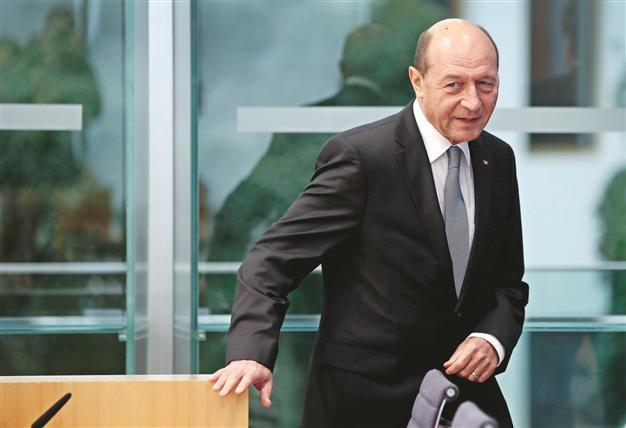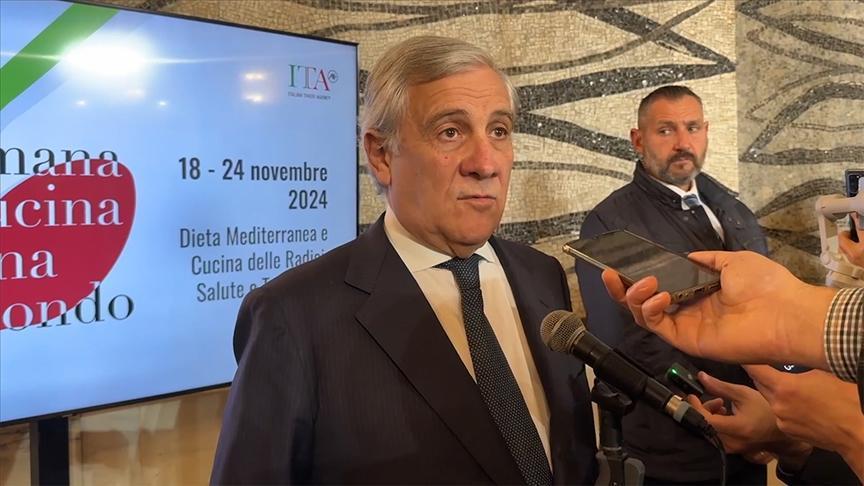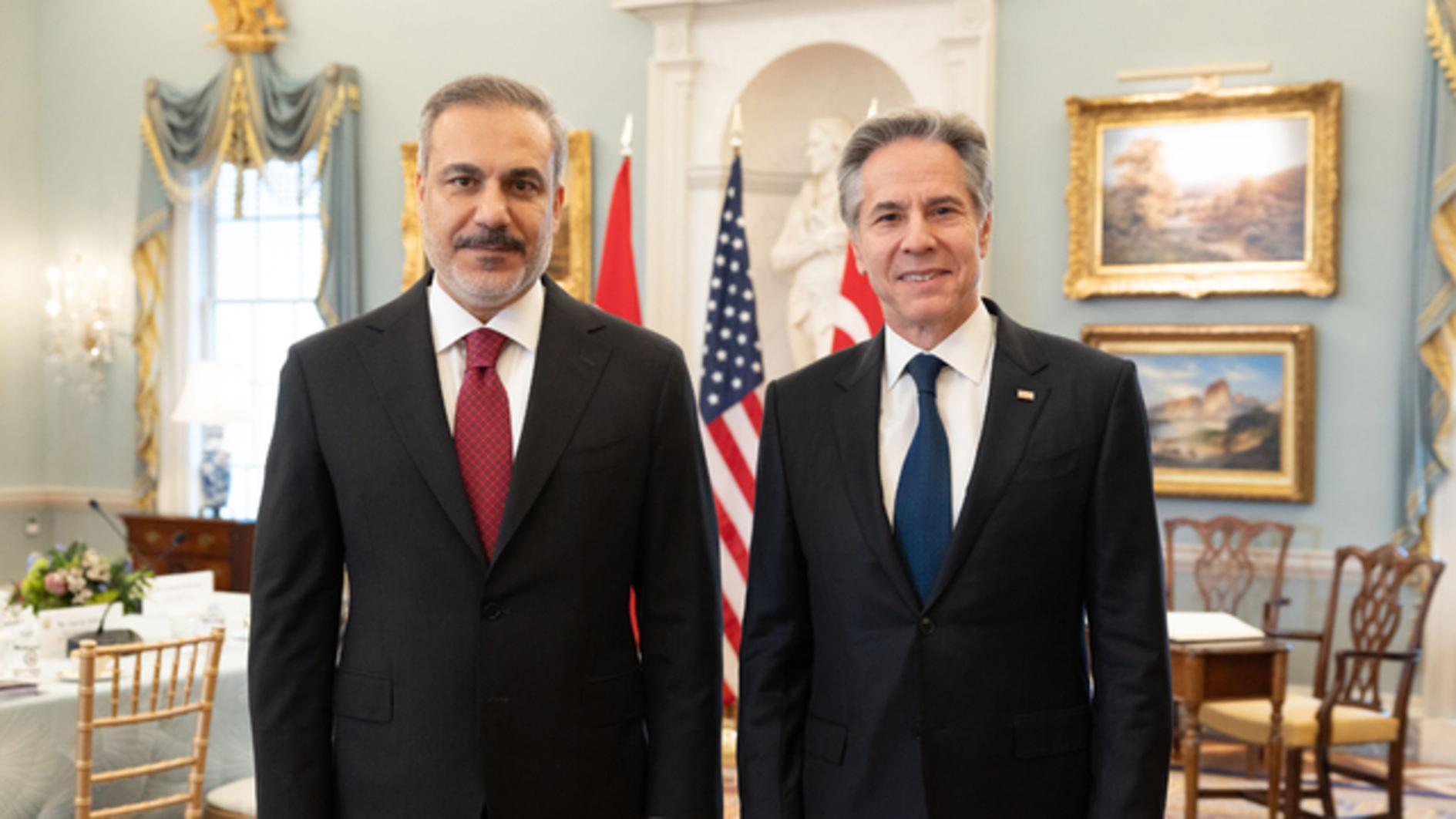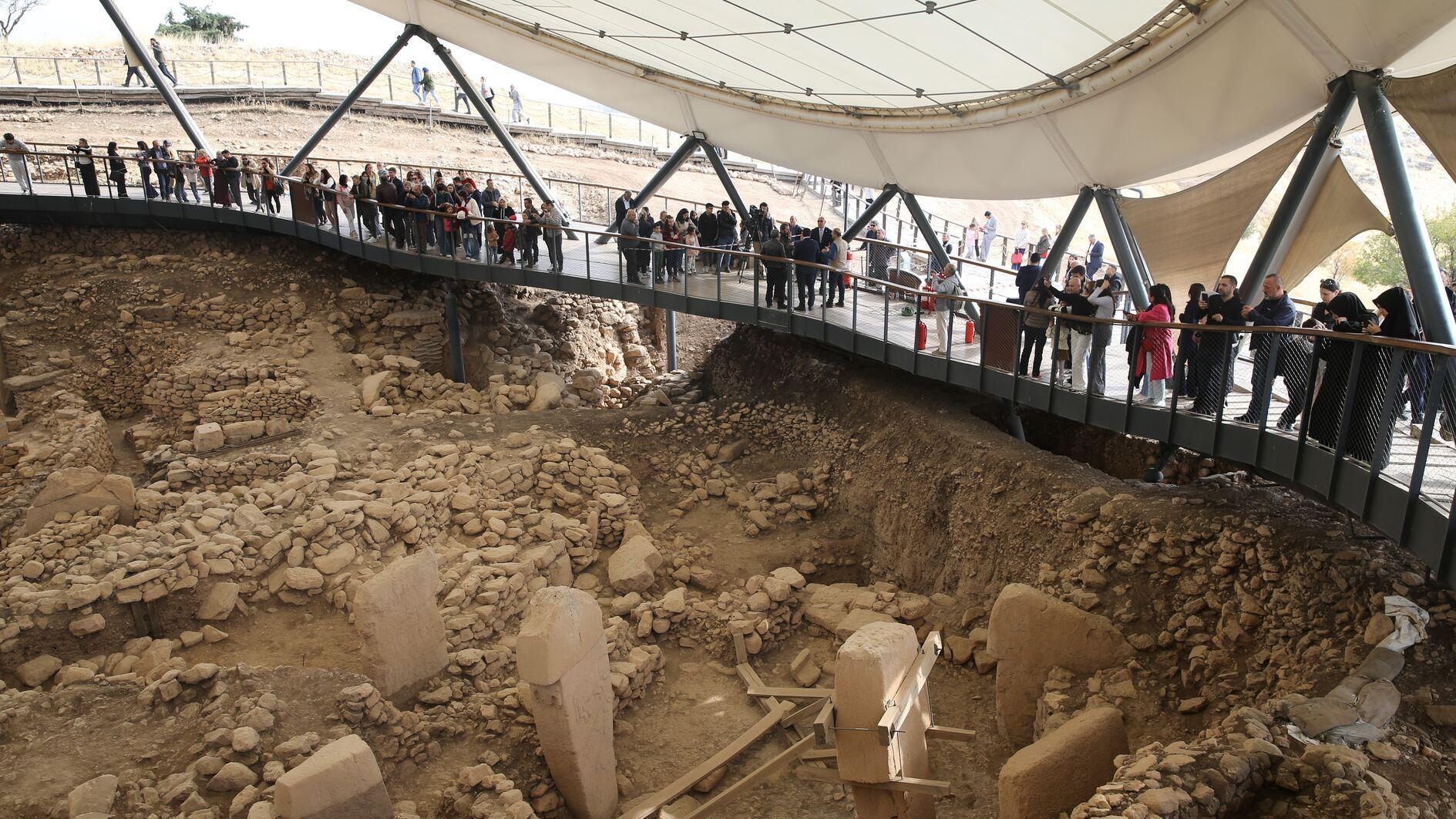Romanian president calls on Turkey for further cooperation in Black Sea region
ANKARA – Hürriyet Daily News

Basescu said he aimed to further encourage high-level bilateral dialogue after the signing of a partnership deal. AP photo
Romanian President Traian Basescu has called on Turkey for greater involvement in the Black Sea Region, arguing that there is a need for a pragmatic approach toward cooperation in less sensitive areas in this region.“The revitalization of Black Sea synergy … will build increased levels of trust and confidence between the countries in the Black Sea region. In this respect, the greater involvement of Turkey, as a key actor, in cooperation in the Black Sea region would be very much welcomed and appreciated,” Basescu said in an email interview with the Hürriyet Daily News ahead of a two-day official visit to Turkey that will kick off today.
The president said he aimed to further encourage high-level bilateral dialogue after the signing of a strategic partnership and to meet members of the Turkish business community to promote economic links.
What are the mutual investment opportunities for Turkey and Romania?
The priority sectors targeted by Turkish investors are the privatization of strategic objectives such as Oltchim, new investments in agriculture, particularly ecological agriculture, the food industry, energy, including green energy, auto parts, construction, the petrochemical industry, tourism and IT.
A memorandum recently signed by the two [countries’] energy ministers aims at enhancing the bilateral cooperation and setting the basis for joint programs in the energy sector, including research and, eventually, joint Black Sea offshore gas and oil exploration, mutual energy exchanges, the more active involvement of Romania in the implementation of Turkish energy programs (natural gas deposits, power equipment for hydropower plants, underwater electric cables, et cetera). At the same time, we envisage mutual investments in innovative technologies and competitive modern products.
How could the governments further facilitate business?
Among the strong points of the Romanian market, one should mention its strategic geographical position; favorable social and cultural environment; skilled and multilingual labor force at low costs; cost of production much lower than in most European countries; income tax and corporate tax at a flat, low level of 16 percent; small prices for consumer goods and services; important sums allocated to infrastructure investments and state aid funds and EU funds for investment projects.
A regulatory legal framework is underway for the implementation of “business angels,” as an alternative to the stock market at the micro-level, with the purpose of attracting capital from investors toward small, unlisted firms.
Romania has a mix of energy resources which may enable it to become a regional leading producer and supplier of energy. Potential resources can be increased by the putting into service of new areas for offshore oil drilling from the fields of the Black Sea continental shelf and the deep sea.
What is your assessment for further cooperation opportunities in the Black Sea region?
I am convinced that Turkey, our strategic partner, can substantially contribute to tapping the region’s potential for development. In the Black Sea region, for now, we understand the need for a pragmatic approach, focused on cooperation in less sensitive areas, such as research or environmental protection, while strengthening existing cooperation formats.
We believe that EU involvement in the region could contribute to the resolution of frozen conflicts around the Black Sea area.
The revitalization of the Black Sea synergy … will build increased levels of trust and confidence between the countries in the Black Sea region. In this respect, the greater involvement of Turkey, as a key actor, in cooperation in the Black Sea region would be very much welcomed and appreciated.
Have you followed the recent political debate in Turkey, especially since the graft probe on Dec. 17? How is the political turmoil in Turkey and the government’s reaction to the graft probe perceived from your side, particularly from the perspective of an EU member country?
We encourage Turkey to make the necessary efforts required for reforms of the judiciary and for the strengthening of the rule of law in line with European values and standards. As one of the EU member states that supports Turkey’s accession process and full membership, Romania supports a timely opening of the relevant negotiation chapters in the areas of justice and the rule of law (chapters 23 and 24). It is also important that Turkey be open for constructive dialogue with all relevant European institutions in order to move forward with an effective process of reforms and to maintain the momentum of the accession process. Being aware of the complexity of the entire process of reforms, we [believe] that Turkish institutions are competent to take on this challenge. It is thus very important in this context that cooperation with the EU institutions and the Council of Europe be further consolidated.
















